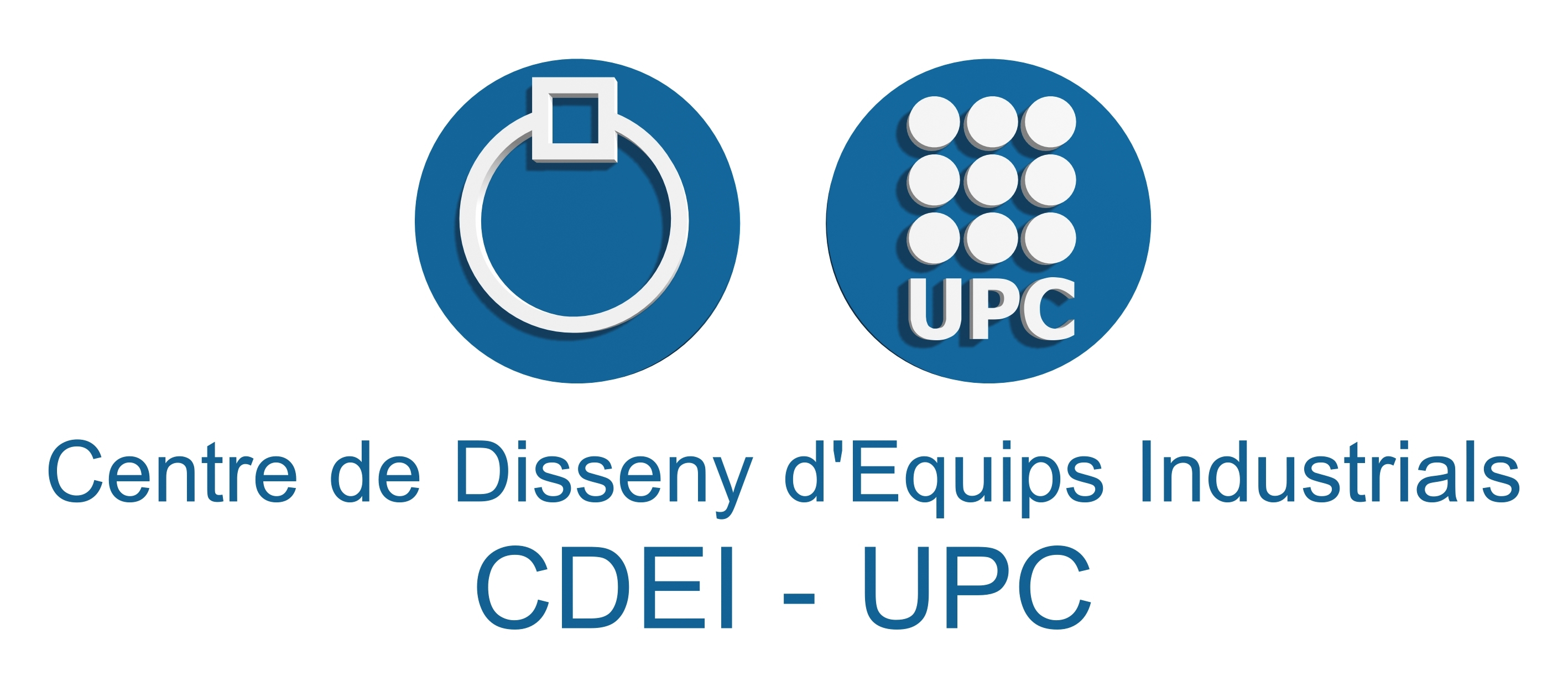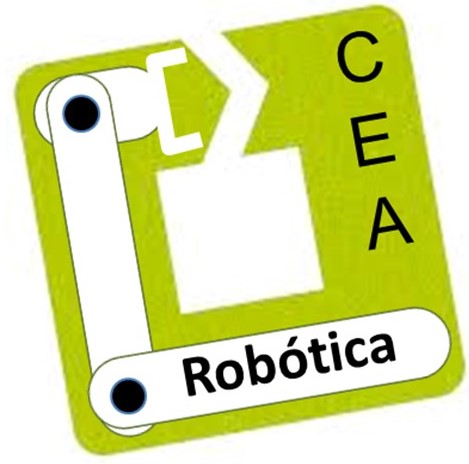
CDEI-UPC is a Technological Center of UPC, with more than 20 years of experience transferring knowledge between University and Industry. It is composed mainly by engineers, from different fields; robotics, mechanics, energy and sustainability. Among our main research lines and expertise, we distinguish: mobile robotics applications, cco-design and environmental impact assessments, simulations, vibrations, ideation, conceptualization, design and validation of prototypes for testing innovative solutions. In mobile robotic applications, the center has an spinoff, called Steering Machines
Entity type: Research Group of University/Research Centre/Public Research Organisation
Size: 11-50
Innovation group:
- Agriculture
- Industrial Robotics
- Logistics and Transport
- Construction
- Laboratory Robotics
State: Spain
Country: España
Contact: Carles Domènech Mestres (carles.domenech@upc.edu)
Web: https://www.cdei.upc.edu/?lang=en
Type of tecnology base of the institution activities
- Agriculture
- Industrial robotics
- Logistics and transport
- Construction
- Laboratory Robotics
- Maintenance and Inspection
- Harsh Environment Robotics
- Safety
- Mechatronics
- Education and training
- Entrepreneurship
Types of activities developed by the institution
- Development and manufacturing of robotic equipment and technologies for end
- Integral customised projects for end users
- Research and development projects
- Training
Project 1
Name: LogiSmile - Last mile logistics for autonomous goods deliveryWeb: https://www.upc.edu/es/sala-de-prensa/noticias/se-inicia-el-proyecto-logismile-para-ensayar-en-europa-robots-autonomos-de-reparto-urbano
Summary:
The objective of the project is to analyze how autonomous delivery devices can improve the urban distribution of goods, quantify the potential impacts and test them in real city environments. CDEI contributes with its expertise in mobile robotics applications and environmental impact assessments. The most energy-efficient trajectory is not the shortest one, especially in a dynamic and hampered environment. CDEI-UPC works on the vehicle autonomy through energy-optimizing trajectories in critical situations. The results are used to analyze how the chassis configuration could improve the robot efficiency and its integration with the city and public space. Environmental impact KPIs are used to quantify in an objective way the impact of the proposed solution and compare it to the alternatives. This project is co-funded by EIT Urban Mobility, an initiative of the European Institute of Innovation and Technology (EIT), a body of the European Union.
Funding source: Yes
Funded externally: Yes
Developed in consortium: Yes
Project 2
Name: Looming FactoryWeb: https://loomingfactory.upc.edu/
Summary:
Looming Factory is a group within the framework of the R&D strategy for smart specialization in Catalonia (RIS3CAT), and subsidized with European FEDER funds, to promote one of the emerging technological sectors in Catalonia: Industry 4.0. A new productive context in which machines and workers act in an integral and connected way.The purpose of the emerging Looming Factory group is to group, consolidate and guide current research in Industry 4.0 of the main R & D & I centers in Catalonia, to obtain the new range of current technologies that will allow the leap to full digitization of Catalan industry.The contributions of CDEI: - Development and test of an autonomous mobile platform to interact with people in a non-differenciated environments. - Development of mobile manipulators. - Robotic energi optimization and recovery. - Life Cycle Assessment (LCA) of a AMR to measure its environmental impact.
Funding source: Yes
Funded externally: Yes
Developed in consortium: Yes
Project 3
Name: Robotics for agricultureWeb: https://agrotech.upc.edu/ca/draft/grups-de-recerca/cdei-dm-contingut/cdei-projectes/robot-mobil-omnidireccional
Summary:
The project aim to cover the need for autonomous mobility solutions in the field of agriculture to integrate sensors, monitoring algorithms, diffusers or mechanical actuators that make the integration of automated solutions in the field economically and environmentally sustainable.OBJECTIVES: - Introduce the benefits of omnidirectional mobile robotics to the field. - Integrate specific applications (inspection cameras, sensors, algorithms for detecting and evaluating crop maturity) on all-terrain omnidirectional platforms and - demonstrate the advantages in control, efficiency, cycle times, productivity, energy consumption and autonomy. - Development of standardized multi-purpose robotic solutions that can be integrated with other tools in the field. - Demonstrate the advantages of collaborative robotics in agricultural tasks. - Development of robust robotic mobile technologies with the ability to overcome obstacles on very uneven terrain.
Funding source: No
Funded externally: No
Developed in consortium: No
Project 4
Name: Development of an AMRWeb: https://steeringmachines.com/
Summary:
Development of a mobile robotic technology capable to perform omnidirectional trajectories without giving up the advantages of using conventional wheels. It allows to access to the omnidirectional movements advantages; maximum maneuverability which reduces the cycle time, optimises space and energy and eases control. Moreover, it allows to interact more naturally with humans in a collaborative environment. On another side, thanks to the use of conventional wheels, the technology allows to ride over any surface (even rugged outdoor terrain), have a high payload capacity, reduce vibrations, maintenance and replacement cost. Further, the ease of cleaning the wheel makes it compatible with food, pharma and clean room industries. The technology has found a concrete application in the indoor-logistics sector as part of an AMR commercialized by Steering Machines (spinoff of CDEI). It offered as a full solution (hardware and software) for any kind of mobile application in different fields.
Funding source: Yes
Funded externally: Yes
Developed in consortium: No
Project 5
Name: ARPRI: Augmented Reality Platform for Robotic Systems Design and InteractionSummary:
The aim of this project is to introduce the tools of augmented reality in the world of industrial robotics. The user would be able to remotely communicate with the robot for simulations, visual programming and information about robot status and maintenance operations. This is a competitive grant from the IGEM, the institution in Idaho, USA devoted to innovation in enterpreneurial applications. The project was done in collaboration with House of Design, an industrial robot automation company.
Funding source: Yes
Funded externally: Yes
Developed in consortium: Yes
Project 6
Name: NRI Small: Collaborative Research: A Design Methodology for Multi-fingered Robotic Hands with Second-Order ConstraintsSummary:
National Science Foundation program to increase the collaboration between European and USA research groups, available only to NSF grantees. In this case, the collaboration was awarded to Idaho State University to collaborate with the Institut de Robotica i Informatica Industrial, IRI (CSIC-UPC) to develop grasping strategies for different robotic hands, and included funds for the exchange of researchers.
Funding source: Yes
Funded externally: Yes
Developed in consortium: Yes
Pattent 1
Publication No.: EP19382227.7ASummary:
Compact omnidirectional autonomous drive unit (Vehicle autònom omnidireccional compacte).
Pattent 2
Publication No.: 63104937Summary:
Agricultural Roguing Machine
Pattent 3
Publication No.: P201730382Summary:
Mechanism for supporting martial arts trainning.
Pattent 4
Publication No.: EP2868599A1Summary:
Device for handling and emptying waste collection containers

